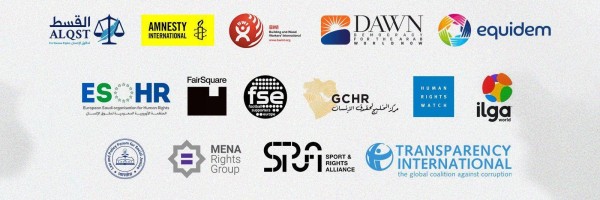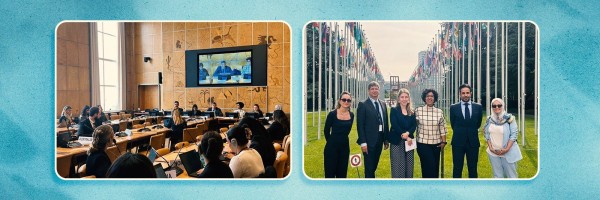On 15 May 2018, the Saudi Arabian authorities launched a wave of arrests against women human rights defenders (WHRDs), as well as several men who advocated for women’s rights. This crackdown on activists was unprecedented in its ferocity. It was also the first time the authorities had targeted women activists en masse, arbitrarily detaining Loujain al-Hathloul, Aziza al-Yousef and Eman al-Nafjan, as well as Mohammed al-Rabiah, in coordinated late-night raids on their homes. Further arrests followed between May and July 2018, targeting Hatoon al-Fassi, Amal al-Harbi, Maysaa al-Manea, Ruqiya al-Muhareb, Abeer Namankani, Shadan al-Onezi, Nouf Abdulaziz, Mayaa al-Zahrani, Nassima al-Sadah and Samar Badawi.
The arrests occurred weeks ahead of and just after the lifting of the driving ban on women in Saudi Arabia on 24 June 2018. The hand that had given women the long-awaited right to drive had taken away the basic freedoms of those courageous women who had campaigned for full inclusion, gender equality, and an end to the male guardianship system. In fact, these women had been at the forefront of the women’s rights movement in Saudi Arabia for many years. They not only campaigned for the right of women to drive, but demanded full citizenship, above all equality and respect as women in a country that continued to see them as minors reliant on a male guardian in order to live their lives.
In the months following their arrests, ALQST had been informed that many of the WHRDs faced sexual harassment, torture and other forms of ill-treatment during interrogation, including being stripped naked, groped in sensitive places, beaten and subjected to electric shocks. Moreover, the authorities subjected the women to psychological torture, threatening them with death or rape and falsely informing one women of a family member’s death. The women were taken to unofficial places of detention nicknamed “the hotel” or the “officer’s guesthouse”, where high state officials including Saud al-Qahtani, close advisor to Crown Prince Mohammed bin Salman, were present and involved in their torture.
The trial of the women human rights defenders began in Riyadh in March 2019. The Saudi authorities initially claimed that the women had communicated with foreign intelligence, and started a state media smear campaign portraying them as traitors, but in the end the charge sheets made no mention of contact with intelligence agencies. Instead, nearly all the charges that the public prosecution brought against them were related to their promotion of women’s rights and calling for an end to Saudi Arabia’s discriminatory male guardianship system, as well as sharing information with journalists, diplomats and international human rights organisations.
The women’s trials were initially scheduled to take place in Saudi Arabia’s Specialised Criminal Court, but had later been moved to Riyadh’s regular criminal court. This demonstrates not only that the government responds to international pressure, but also that the Saudi judiciary is not independent, and the charges against the women are in fact political. Foreign diplomats and international journalists were routinely barred from entering the courtroom to monitor the hearings.
Due to mounting international pressure, including a resolution by the European Parliament and two joint statements by groups of UN member states in 2019, Hatoon al-Fassi, Amal al-Harbi, Maysaa al-Manea, Ruqiya al-Muhareb, Abeer Namankani, Shadan al-Onezi, Aziza al-Yousef and Eman al-Nafjan were granted temporary release, but are not allowed to continue their studies or go back to work as their trial remains ongoing. Loujain al-Hathloul, Samar Badawi, Nassima al-Sadah, Nouf Abdelaziz and Mayaa al-Zahrani remain detained to this day. Their trials kept being delayed for unknown reasons and since the outbreak of COVID-19 have been postponed indefinitely.
Meanwhile in April 2019 and much further off the spotlight of international media coverage, the Saudi authorities arrested at least 14 bloggers, writers and family members of women human rights defenders, including Salah al-Haidar, son of women’s rights activist Aziza al-Yousef. The individuals targeted had previously engaged in public discourse on reforms and their arrests appeared to be linked to their support for or connection with the women activists. Unfortunately, their arrests have not gained similar international attention and most of these arrested in April 2019 remain in prison today. This is yet another example that international media attention paired with political pressure by the global state community is the most effective way to obtain human rights concessions.
ALQST calls on the Saudi authorities to drop all charges against the women human rights defenders and immediately and unconditionally release those who are still imprisoned along with all others detained for the peaceful expression of their opinions or for acting to promote human rights. We also urge Saudi Arabia to allow a prompt, impartial and effective investigation into allegations of torture and demand that the perpetrators be held to account. Lastly, we appeal to the international community to increase its pressure on the Saudi authorities to release the women human rights defenders and to make future economic and military cooperation with the kingdom dependent on its compliance with international human rights norms and values.
Take action and support the campaign
To mark the two-year detention anniversary of the real champions of reform, ALQST and Amnesty International are launching a campaign to free the female activists, inviting everyone to participate in the Global Day of Action in support of Saudi WHRDs. Join us on 15 May 2020, by collectively exerting pressure on the Saudi authorities through social media channels, media presence and networks calling on @KingSalman to drop charges and release all Saudi women activists immediately and unconditionally.




